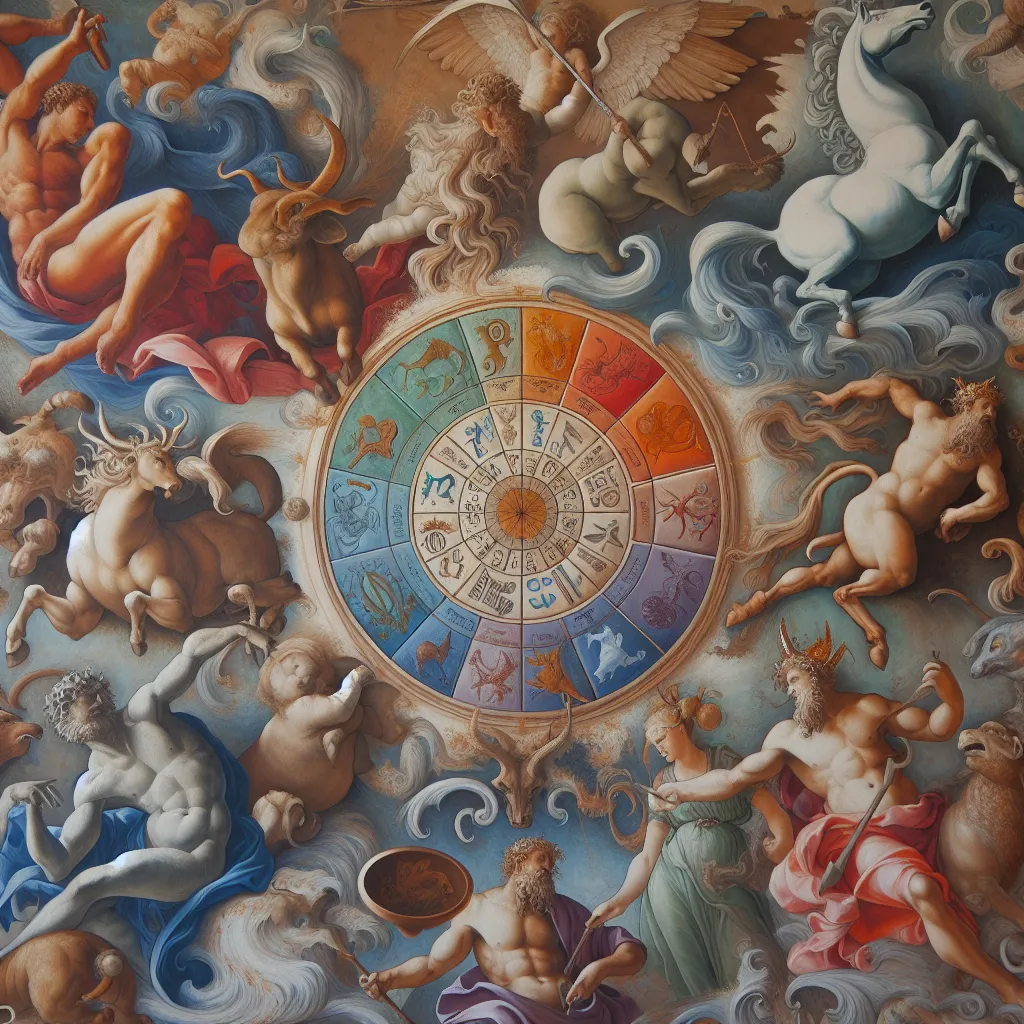
- Published on
- Authors

- Name
- You
Astrology in Different Cultures: A Comparative Study
Astrology, a mystical blend of science and art, maps celestial alignments to human events and experiences. Understanding its unique practice across different cultures enhances our appreciation of this ancient wisdom. This article explores Western, Vedic, Chinese astrology, and beyond, offering a comparative study.
Contents:
- [Introduction to Astrology](#i ntroduction-to-astrology)
- [Western Astrology](#w estern-astrology)
- [Vedic Astrology](#v edic-astrology)
- [Chinese Astrology](#c hinese-astrology)
- [Comparative Analysis](#c omparative-analysis)
- [Fundamental Differences](#f undamental-differences)
- [Charting Techniques](#c harting-techniques)
- [Philosophical Underpinnings](#p hilosophical-underpinnings)
- [Conclusion](#c onclusion)
Introduction to Astrology
Astrology dates back to ancient civilizations, seeking to link human affairs with cosmic events. Its practice has evolved, integrating cultural nuances and differing philosophical perspectives, but the core objective remains constant: understanding our place in the universe.
Western Astrology
Overview
Western Astrology, tracing its roots to Babylonian and Hellenistic influences, is most familiar to a global audience. It employs a geocentric model where the Earth is the center of observable celestial phenomena.
Zodiac System
- 12 Signs: Aries, Taurus, Gemini, Cancer, Leo, Virgo, Libra, Scorpio, Sagittarius, Capricorn, Aquarius, Pisces.
- Elements: Fire, Earth, Air, Water.
- Modalities: Cardinal, Fixed, Mutable.
Table: Western Zodiac
| Sign | Element | Modality | Ruling Planet |
|---|---|---|---|
| Aries | Fire | Cardinal | Mars |
| Taurus | Earth | Fixed | Venus |
| Gemini | Air | Mutable | Mercury |
| ... | ... | ... | ... |
Charting Tools
- Natal Charts
- Progressions
- Transits
Key Concept: Personality-focused and predictive.
Vedic Astrology
Overview
Vedic Astrology, or Jyotish, emanates from ancient India and is integrally linked with Hindu philosophy. It employs the sidereal zodiac, aligning closely with fixed star constellations.
Zodiac System
- 12 Rashis: Mesha, Vrishabha, Mithuna, Karka, Simha, Kanya, Tula, Vrishchika, Dhanu, Makara, Kumbha, Meena.
- Elements: Fire, Earth, Air, Water.
- Modes: Movable, Fixed, Dual.
Table: Vedic Zodiac
| Rashi | Element | Mode | Ruling Planet |
|---|---|---|---|
| Mesha | Fire | Movable | Mars |
| Vrishabha | Earth | Fixed | Venus |
| Mithuna | Air | Dual | Mercury |
| ... | ... | ... | ... |
Charting Tools
- Natal Charts (Rasi Charts)
- Dashas (Planetary periods)
- Transits (Gocharas)
Key Concept: Dharma (Life purpose) and Karma (actions).
Chinese Astrology
Overview
Chinese Astrology integrates Yin-Yang theory, Five Elements (Wu Xing), and a 12-year lunar calendar cycle, attributing an animal to each year.
Zodiac System
- 12 Animals: Rat, Ox, Tiger, Rabbit, Dragon, Snake, Horse, Goat, Monkey, Rooster, Dog, Pig.
- Five Elements: Wood, Fire, Earth, Metal, Water.
Table: Chinese Zodiac
| Year | Animal | Fixed Element | Yin/Yang |
|---|---|---|---|
| 2020 | Rat | Water | Yang |
| 2021 | Ox | Earth | Yin |
| 2022 | Tiger | Wood | Yang |
| ... | ... | ... | ... |
Charting Tools
- Four Pillars of Destiny (BaZi)
- Zodiac Compatibility
Key Concept: Fate and character assessment.
Comparative Analysis
Fundamental Differences
| Aspect | Western Astrology | Vedic Astrology | Chinese Astrology |
|---|---|---|---|
| Zodiac basis | Tropical (seasonal) | Sidereal (constellations) | Lunar (animal cycles) |
| Foundation | Psychological | Spiritual/Karmic | Elemental/Yin-Yang |
| Chart Focus | Personality, Prediction | Dharma, Karma, Natal, Dashas | Fate, Character |
Charting Techniques
While Western charts revolve around Sun signs, Vedic charts prioritize the Moon and Ascendant, and Chinese charts are structured around animal years and elements.
Philosophical Underpinnings
Western astrology often emphasizes psychological traits and predictive elements. Vedic astrology is profoundly spiritual, entwined with karma and dharma. Chinese astrology uniquely integrates complex cycles and elemental theories reflective of Eastern philosophies.
Conclusion
Astrology, a multifaceted spiritual and scientific tool, reflects diverse cultures' intricate understandings of human life intertwined with celestial phenomena. By comparing Western, Vedic, and Chinese astrology, we uncover the richness of mystical traditions, offering us profound insights into the cosmos and our inner selves.
Recommended Reading:
- "Astrology: A Cosmic Science" by Isabel M. Hickey
- "Light on Life: An Introduction to the Astrology of India" by Hart de Fouw & Robert Svoboda
- "The Complete Guide to Chinese Astrology" by Lori Reid
Embrace the stars, for they are the ancient navigators of our destiny.
